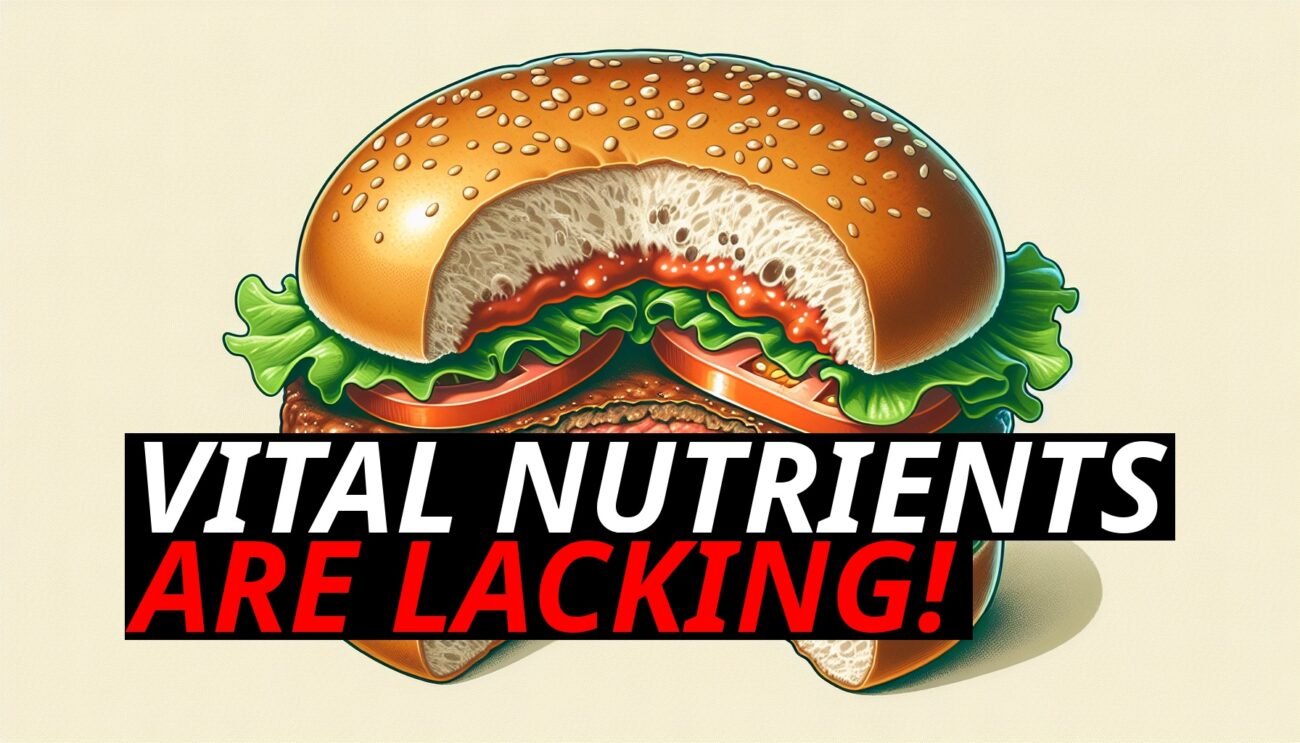For decades, we’ve been told that low-fat diets are the key to staying healthy. From fat-free yogurt to lean meats and skim milk, the message was clear: fat is the enemy. But as more people start to question this long-standing advice, they’re discovering the hidden costs of low-fat products—costs that go far beyond just what’s on the label. Behind the curtain, the food industry has played a major role in promoting low-fat diets, creating a web of misinformation that has led to serious long-term health consequences. So, what isn’t the food industry telling us?
The Low-Fat Craze: How It All Started
In the 1970s, a major shift occurred in the world of nutrition. Studies linked saturated fat to heart disease, and soon after, governments and health organizations began recommending that people reduce their fat intake—especially animal fats like butter and red meat. The food industry quickly jumped on board, producing a flood of low-fat products that promised to be healthier alternatives.
At first glance, the concept seemed logical: reduce fat, and you reduce the risk of heart disease and obesity. But as the low-fat craze gained momentum, something else began to happen. The food industry started replacing fat with sugar, refined carbs, and artificial ingredients to make these low-fat products taste good. This shift, while profitable for the industry, had unintended consequences that we’re still dealing with today.
What The Food Industry Didn’T Tell You: Sugar And Processed Additives
While the labels on low-fat products proudly proclaimed their lack of fat, what they didn’t highlight was the increase in sugar and other additives. Without fat to provide flavor and texture, the food industry turned to sweeteners, thickeners, and artificial flavors to make their low-fat offerings palatable. As a result, many low-fat foods became ultra-processed, full of empty calories, and less nutritious than their full-fat counterparts.
For instance, a low-fat yogurt might have significantly less fat, but it could contain a high amount of sugar—sometimes even more than a candy bar. This trade-off created a vicious cycle: people consumed low-fat products thinking they were making healthy choices, but the increased sugar led to blood sugar spikes, cravings, and weight gain over time.
What the food industry failed to explain was that the real issue wasn’t fat—it was the quality of the food and the role of added sugars in fueling the very diseases low-fat diets were supposed to prevent.
The Rise Of Health Issues: From Fat Deficiency To Metabolic Problems
As low-fat diets became the norm, health problems began to rise—many of which were linked to the lack of healthy fats in the diet. The food industry had successfully convinced people that fat made you fat and caused heart disease, but the opposite was starting to show.
By cutting fat out of their diets, people unknowingly missed out on essential nutrients found in fat-rich foods, leading to a range of deficiencies and health issues:
- Hormonal Imbalances: Fats, especially saturated fats, are crucial for the production of hormones like testosterone and estrogen. Without enough fat, hormone levels can become imbalanced, leading to issues such as fatigue, mood swings, and reduced muscle mass.
- Nutrient Deficiencies: Many essential vitamins, such as vitamins A, D, E, and K, are fat-soluble, meaning they need fat to be absorbed by the body. Low-fat diets make it harder for people to absorb these important nutrients, leading to deficiencies that affect everything from bone health to immune function.
- Weight Gain: The idea that low-fat diets help with weight loss is a myth. Because low-fat products are often loaded with sugar and refined carbs, they can lead to weight gain rather than weight loss. The lack of satiating fats also leaves people feeling hungry and more likely to snack throughout the day.
- Heart Disease: Ironically, the very condition low-fat diets were supposed to prevent—heart disease—has become more prevalent. Emerging research shows that the problem wasn’t with fats, especially natural fats from whole foods, but with refined sugars and processed carbohydrates that replaced fat in these diets.
The Benefits Of Healthy Fats: What The Food Industry Ignored
As the tide begins to turn, more people are rediscovering the benefits of healthy fats—and realizing that the food industry’s low-fat agenda might have steered them wrong for years. Healthy fats, like those found in avocados, olive oil, grass-fed butter, and fatty fish, play an essential role in maintaining overall health. Here’s why these fats are crucial:
- Satiation and Weight Management: Fat is the most calorie-dense macronutrient, providing long-lasting energy and helping to keep you full. When you eat a diet rich in healthy fats, you feel more satisfied, reducing the urge to snack on empty-calorie foods.
- Heart Health: Contrary to the old belief that fat causes heart disease, studies show that healthy fats, such as omega-3 fatty acids found in fish, can reduce inflammation and lower the risk of heart disease.
- Brain Health: The brain is about 60% fat, and it relies on a steady intake of healthy fats to function properly. Fat-rich foods, especially those containing omega-3s, support cognitive function, memory, and mood regulation.
- Nutrient Absorption: Healthy fats help your body absorb fat-soluble vitamins and other important nutrients, ensuring that you get the most out of your food.
The food industry ignored these benefits in favor of promoting low-fat, highly processed alternatives. But as the truth about healthy fats continues to spread, more people are turning away from low-fat products and embracing full-fat foods that nourish their bodies in ways low-fat products never could.
The Profit Motive: Why Low-Fat Products Became A Cash Cow
So why did the food industry push low-fat products so aggressively? The answer lies in profit margins. By removing fat from food and replacing it with cheaper ingredients like sugar, corn syrup, and artificial additives, food manufacturers were able to produce low-fat products at a lower cost while selling them at a premium. The low-fat label became a marketing tool that allowed companies to charge more for what was essentially a less nutritious product.
The food industry also tapped into consumer fears about fat, convincing people that low-fat meant healthier. The result was a perfect storm: a public eager to avoid fat, a food industry happy to supply cheap, processed alternatives, and a health crisis fueled by sugar and nutrient-poor foods.
The Turning Tide: People Rediscovering The Truth About Fat
Today, more and more people are rejecting the low-fat narrative and embracing full-fat, whole foods. The growing popularity of diets like keto, paleo, and carnivore shows that people are rediscovering the importance of healthy fats and questioning the long-held belief that fat is bad for you.
As people move away from processed low-fat products and back to natural sources of fat like meat, eggs, and dairy, they’re experiencing significant health benefits, including weight loss, improved energy levels, and better mental clarity. These diets are showing that the key to long-term health isn’t about cutting fat—it’s about choosing the right kinds of fat and avoiding the processed sugars and additives that caused the problem in the first place.
Conclusion: Breaking Free From The Low-Fat Lie
The low-fat craze that dominated the food industry for decades wasn’t just a health trend—it was a carefully crafted marketing campaign that prioritized profits over public health. By promoting low-fat products loaded with sugar and additives, the food industry created a health crisis that we’re only now beginning to unravel.
As more people embrace healthy fats and move away from processed foods, it’s clear that the true path to wellness isn’t through low-fat diets—it’s through whole, nutrient-dense foods that support the body’s natural functions. It’s time to leave the low-fat lie behind and rediscover the benefits of full-fat nutrition for better health and a better future.













